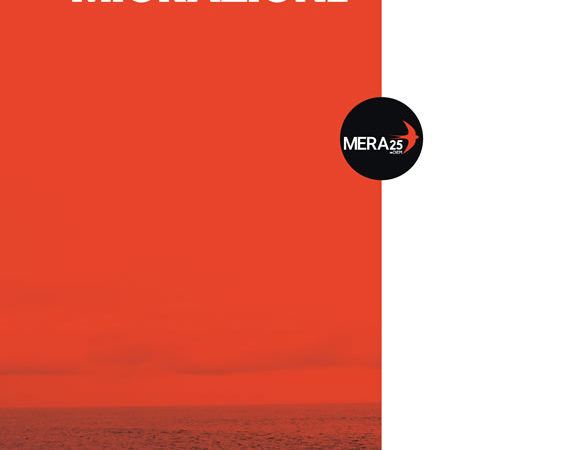A major consequence of the 2008 economic crisis and the era of devastating austerity imposed in the UK by the Tory Government since 2010 has been an attack on workers rights.
This has profoundly weakened them and fuelled a rise in self-employment, zero hours contracts and the gig economy. Those gaining their livelihood from these precarious avenues in the UK and all over the world have been left in tenuous financial situations by the necessary shutdown. In many cases, the pandemic caused workers’ incomes to completely evaporate overnight. The COVID-19 pandemic and the omnipresent threat of climate change have illustrated that we cannot return to business as usual.
In the UK music industry, 72% of all workers are self-employed, leaving them devoid of any job security, sick pay or holiday pay. A common feature of self-employment is that people do not take time off when they are ill, as they will lose income. Paulette Constable (known as DJ Paulette) stated, “Most self-employed people will work through World War 3”. She continues, “I never take time off; I’ve never taken time off as a child either, I was never encouraged to take time off. I’ve worked through broken legs, broken bones, everything, car accidents, the lot.”
It is not just those working in the music industry that are suffering hardship as a result of the COVID-19 pandemic.
Those working in the gig economy, on zero hours contracts and in other self-employed professions are also suffering. There are many companies utilising zero-hours contracts, to offer casual and insecure employment. According to the UK’s Office of National Statistics, between October and December 2019, 974,402 people in the UK were employed on a zero hours contract, 73,664 were aged 65 or over. Workers in these groups are already vulnerable due to their insecure working conditions.
On March 20, the Conservative government announced their Coronavirus job retention scheme. The government will pay businesses to pay their employees, covering up to 80% of employees’ wages with a cap of £2500 per employee, per month. On Thursday March 26, Rishi Sunak, the Chancellor of the Exchequer introduced the same policy for self-employed people, but stating that the funds would only be made available by June 2020 and would be based upon an average of the previous three years taxable profits.
The UK’s Institute for Fiscal Studies has stated that 2 Million self-employed people will not qualify for assistance from the Chancellor’s stimulus package because, they earn too little from self-employment and have not made a profit, earn over the £50,000 per year threshold, or only began working for themselves in the past year.
Afonso Vaz, a lighting engineer, commented on the government scheme for the self-employed:
“I have to admit that the government seems to have put help in place for everyone, or at first glance before going through the small print. But money is simply never, enough right? I think the help scheme for the self-employed is by far the most complex, as there are many factors to consider in the formula the government has put out.”
The future does not bode well for musicians and engineers.
As Chris Whitty the UK’s Chief Medical officer has stated that until a vaccine or a highly effective antiretroviral treatment that prevents people dying from COVID-19 is found, social distancing measures may remain in place until the end of the calendar year. These social distancing measures are necessary but will leave workers in the entertainment industry, and other industries, out of work for the foreseeable future.
Since the onset of the pandemic, unemployment claims in the U.S have soared to a catastrophic, ever rising figure of more than 36 million and there are currently 1.8 million new Universal Credit claims in the UK, creating hardship and insecurity for millions of people.
In times of financial crisis, radical measures are required such as, Universal Basic Income (UBI). In Stockton, California, Universal Basic Income has been trialled with 125 local residents, who have been given $500 per month. As part of the $2 Trillion stimulus package in the USA every American adult will receive a one-off payment of $1,200 and every child will receive $500. Bernie Sanders, the former Democratic Presidential candidate has proposed that every person in America should receive $2,000 per month for the duration of the crisis.
People who work in the music industry are enthusiastic about the concept of Universal Basic Income.
Daniel Walker, who works as a lighting engineer added on Universal Basic Income, “They should bring forward Universal Basic Income and that should be the way to go, because then it’s a level playing field and it’s not linked to universal credit”.
Universal Basic Income could offer workers trapped in the gig economy and zero hours contracts the ability to seek more secure, higher paid employment. This would allow workers more time for relaxation and disposable income, which could then be spent within the local economy. DiEM-25 has set out their three-point plan to stimulate the European economy, which includes a call to the ECB to offer €1 Trillion in Eurobonds, giving every EU citizen €2,000 immediately and calling upon the EU to create a European green recovery and investment programme. DiEM-25 has also proposed Universal Basic Dividend as an alternative to UBI. UBD would be based upon a “public” percentage of companies’ profits, instead of the taxpayer or government funding UBI.
There are trade unions that cater for the music industry in the UK, such as the Musicians Union and the Bectu branch of Prospect. James Cole, who works as a sound engineer states, “All the other engineers are not unionised.” He continues, “I think one thing that could come out of this is we may get some kind of trade union for people like us. Sound Engineers have no voice, we’re not united in any way”. Daniel adds:
“There’s going to be a desire for all of the musicians who have gone through this to not want it to happen again. We need to get together and organise”.
This crisis has revealed the fragile nature of many people’s employment status.
In order to combat this insecurity, trade union membership needs to be vastly expanded across the music industry, in order to protect and expand the rights of workers.
During the pandemic musicians have turned to performing via live streams, but for the vast majority of artists streaming does not provide a stable income. Sound charts blog has calculated that rights holders receive £2.74 ($3.18) per 1000 streams on Spotify. For smaller bands starting out, playing live is an essential way to connect with audiences and now acts as the main source of revenue for all artists. The Musicians Union and the Ivor’s Academy have launched the Keep Music Alive campaign, which calls for industry stakeholders to come together to agree an equitable and sustainable model for royalty distribution. The Keep Music Alive campaign launched a petition calling on the UK government to immediately commence a review of streaming.
Going to see live music is a communal experience and a cross section of different sized venues is required to sustain the music industry. If no small venues exist, then there is no training ground for the musicians and engineers of the future. Where will the next Rage Against the Machine, Public Enemy, Roger Waters, Manic Street Preachers or Sons of Kemet rise from?
The paramount concern in the pandemic is rightly on those falling victim to COVID-19 and the valiant health care professionals battling the pandemic. They are forced to care for the sick and dying in often inadequate circumstances, without even enough Personal Protective Equipment (PPE). Paul Farmer, one of the founders of Partners In Health, said in an interview regarding the current pandemic with NPR in March, in relation to the findings from the Ebola epidemic in 2014: “Flattening the curve through social distancing and containment is a good thing as long as people have a way to get to professional care if they need IV fluids or oxygen. We need to integrate containment and care. That’s a big lesson.”
The UK now has the horrifying distinction of having the highest death toll in Europe. From the outset of the pandemic the Tory government failed to adopt the viral pandemic practices to suppress and control the virus, of testing, isolating confirmed cases, treating infected patients and contact tracing those they had been in contact with. The Tory government is now attempting to rush out of lockdown in England without adequate PPE or health and safety measures implemented in public spaces or the workplace, with workers left to choose between risking their lives or their livelihoods.
The Bank of England currently predicts a 14% contraction in the UK economy, which will cause an unprecedented recession across all sectors of the economy. The UK economy has already shrunk by 2% in the first three months of the year. Rishi Sunak has stated: “It is now very likely that the UK economy will face a significant recession this year, and we’re already in the middle of that as we speak.”
Lessons should be learned from the 2008 economic crash.
Workers should not allow their fundamental rights to be eroded in times of crisis, particularly in relation to health and safety, an area that needs to be strengthened in the face of the pandemic.
We must demand fully funded health care systems and public services — this is reinforced in the Green New Deal for Europe. Workers should seize the opportunity, as this calamity can create a flourishing of ideas and action to create a more just, equitable and sustainable world. As Patti Smith said, “People have the power/the power to dream to rule/to wrestle the Earth from fools.”
Kieran and Shona Fairweather are in a band, Altered Archipelago: www.musicglue.com/alteredarchipelago their new EP, Push Forward is out now, from which 10% of all sales will go to Partners in Health: www.PIH.org
Volete essere informati delle azioni di DiEM25? Registratevi qui!




